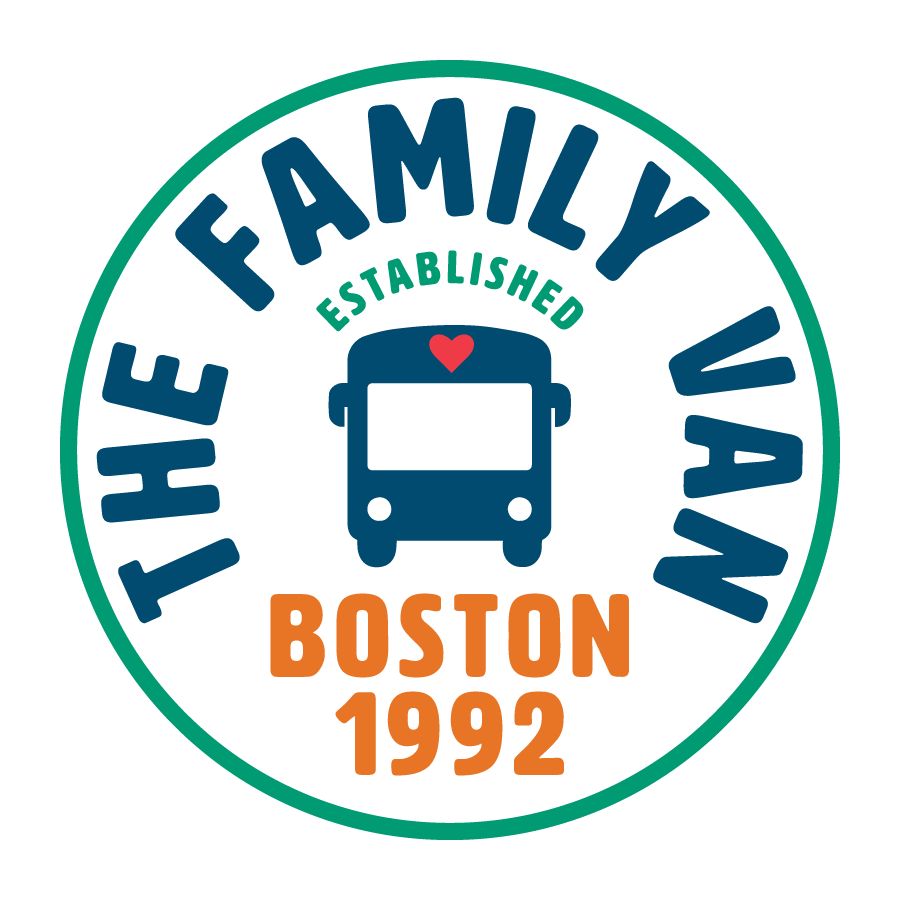News
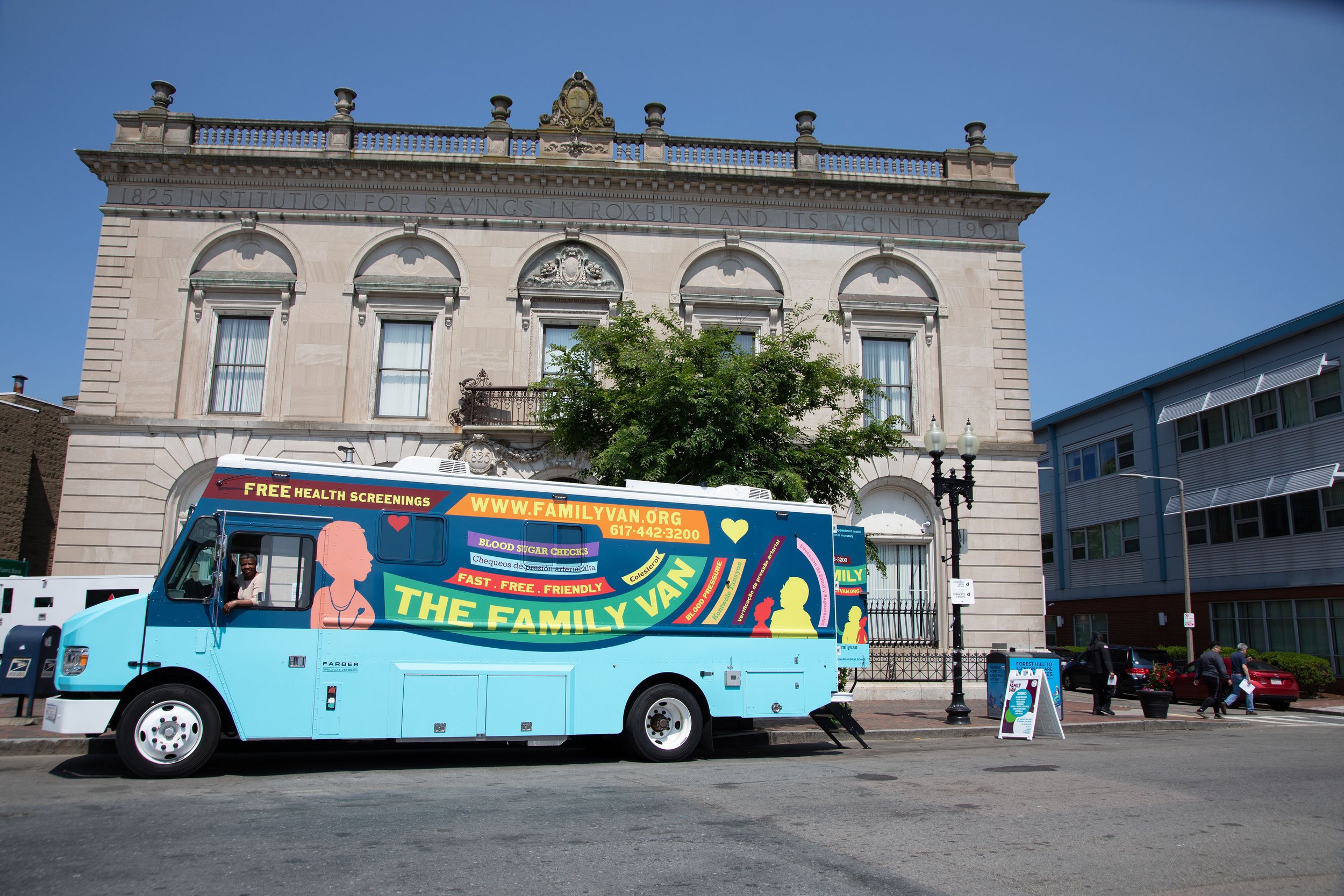
Health Leaders Media: Address Your Toughest Care Gaps With Mobile Health Clinics
Healthcare organizations looking to connect with underserved populations on their own turf—literally—are taking a closer look at mobile health clinics. Roughly 2,000 mobile health clinics exist around the country, according to a March 2023 study published in the American Journal of Accountable Care. They come in a variety of shapes and sizes, from trucks and vans to specially designed RVs and EMS units, and offer a variety of services, including primary and specialty care, population health, and health and wellness resources.
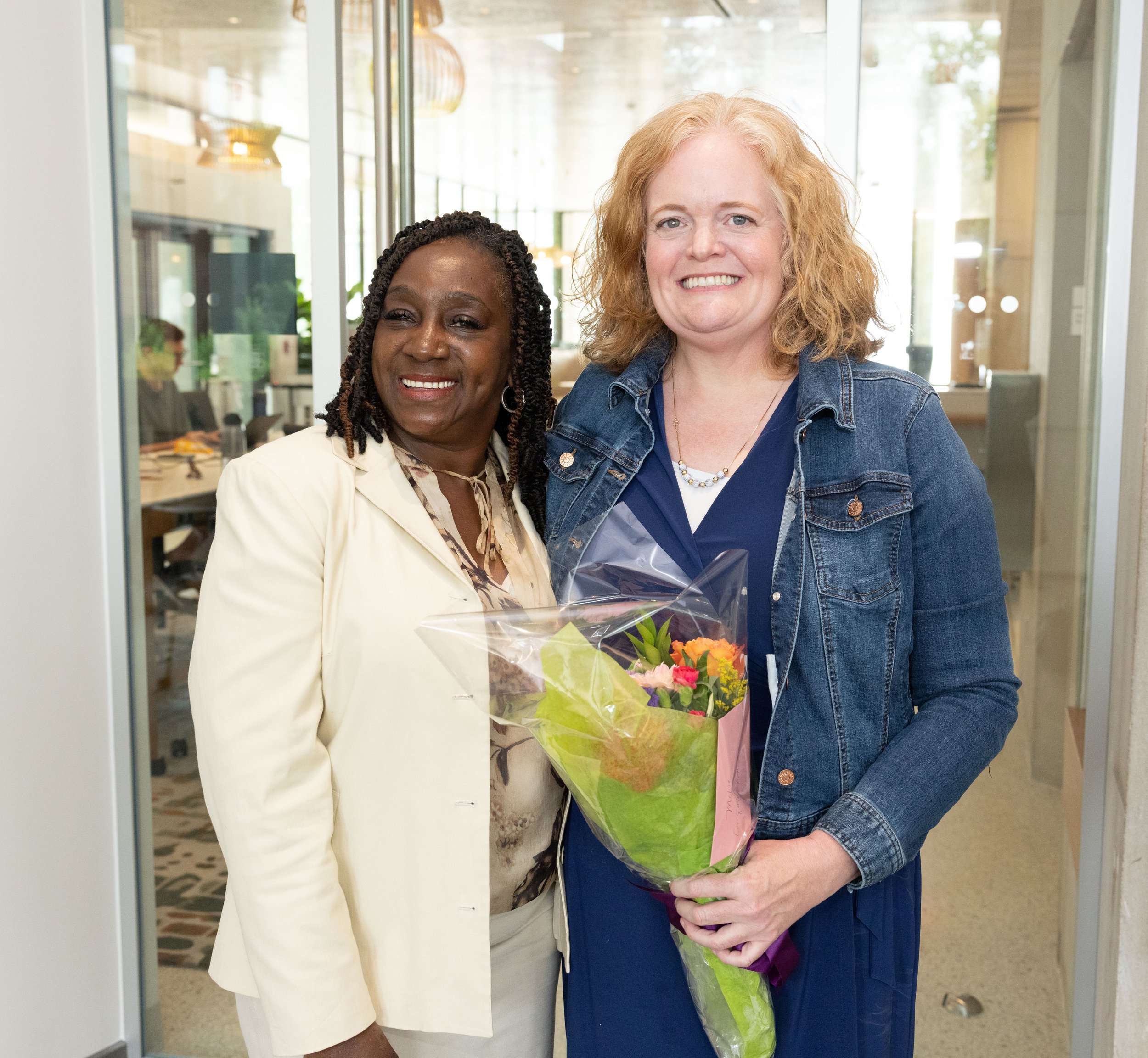
The Post and Courier: Mobile health expanding across the US, may offer option for rural and underserved SC
NORTH CHARLESTON — Mobile health care provided by clinics on wheels has expanded across the country and might be an option for critical services like prenatal care in rural and underserved areas of South Carolina, officials said.
One Lowcountry provider has already received state funding to help acquire a new mobile unit.
Providing care out in the community might sound radical now but that’s where it began when doctors and midwives made house calls, said Dr. Mollie Williams, executive director of The Family Van and Mobile Health Map at Harvard Medical School.
“They came to your home and your neighborhood,” she said. Williams was the keynote speaker Oct. 19 at a mobile health conference sponsored by Roper St. Francis Healthcare and Boeing.
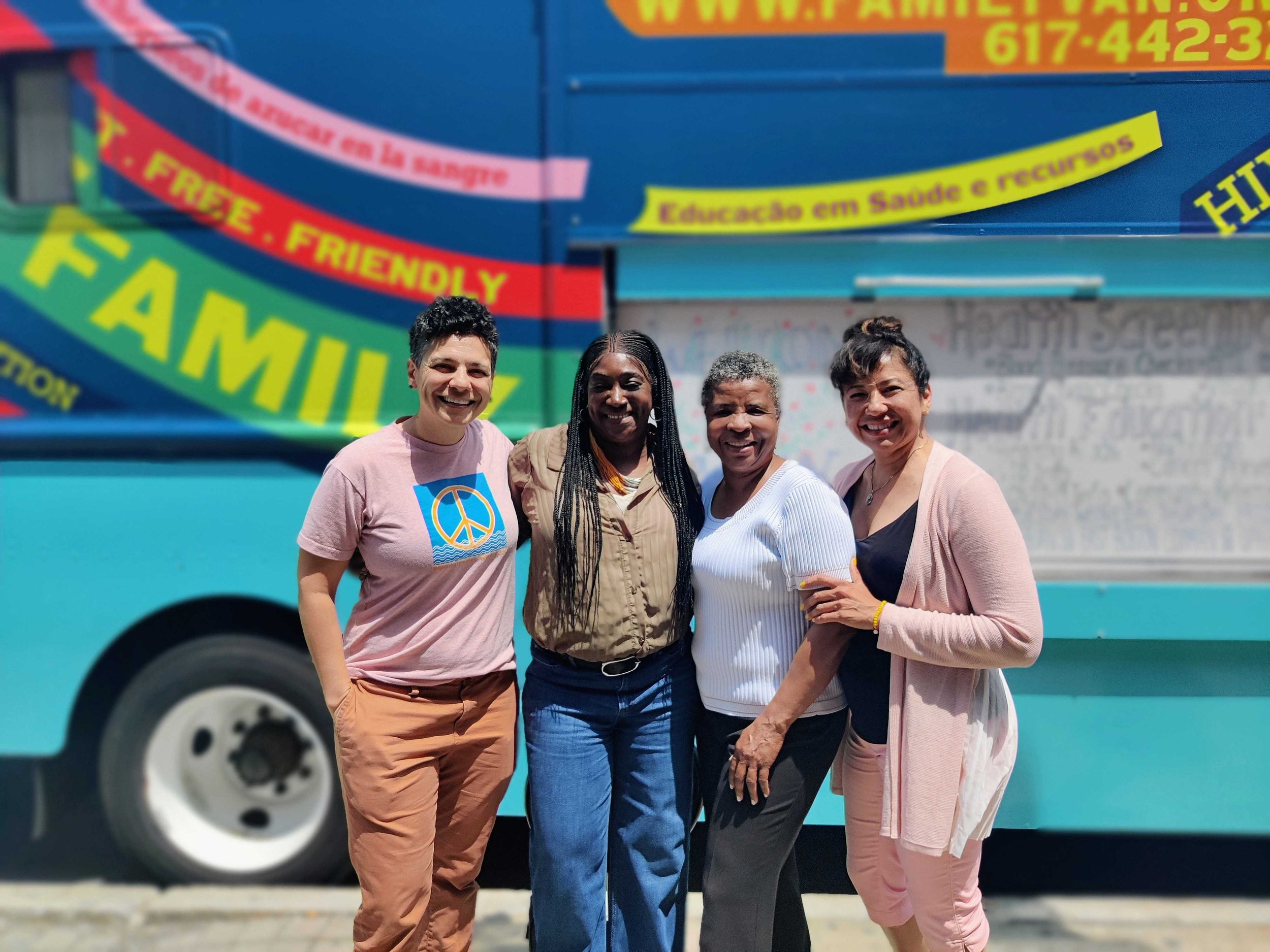
Harvard T.H. Chan School: Knock, knock. Who’s there: A Mobile Clinic, an Infectious Disease Epidemiologist, and an Open Mind
“I’m honestly open to filling in wherever you need help,” I said in the Spring 2023 semester over my first Zoom call with Mollie Williams, the Executive Director of The Family Van. The Family Van, a mobile clinic in Boston, has traveled across the city over the last 30 years, delivering primary care services and performing basic screenings to various low-income and minority groups. Over time, they have adapted their services to best-fit community needs. Recently, their focus has been on diabetes and hypertension prevention and mental health promotion.
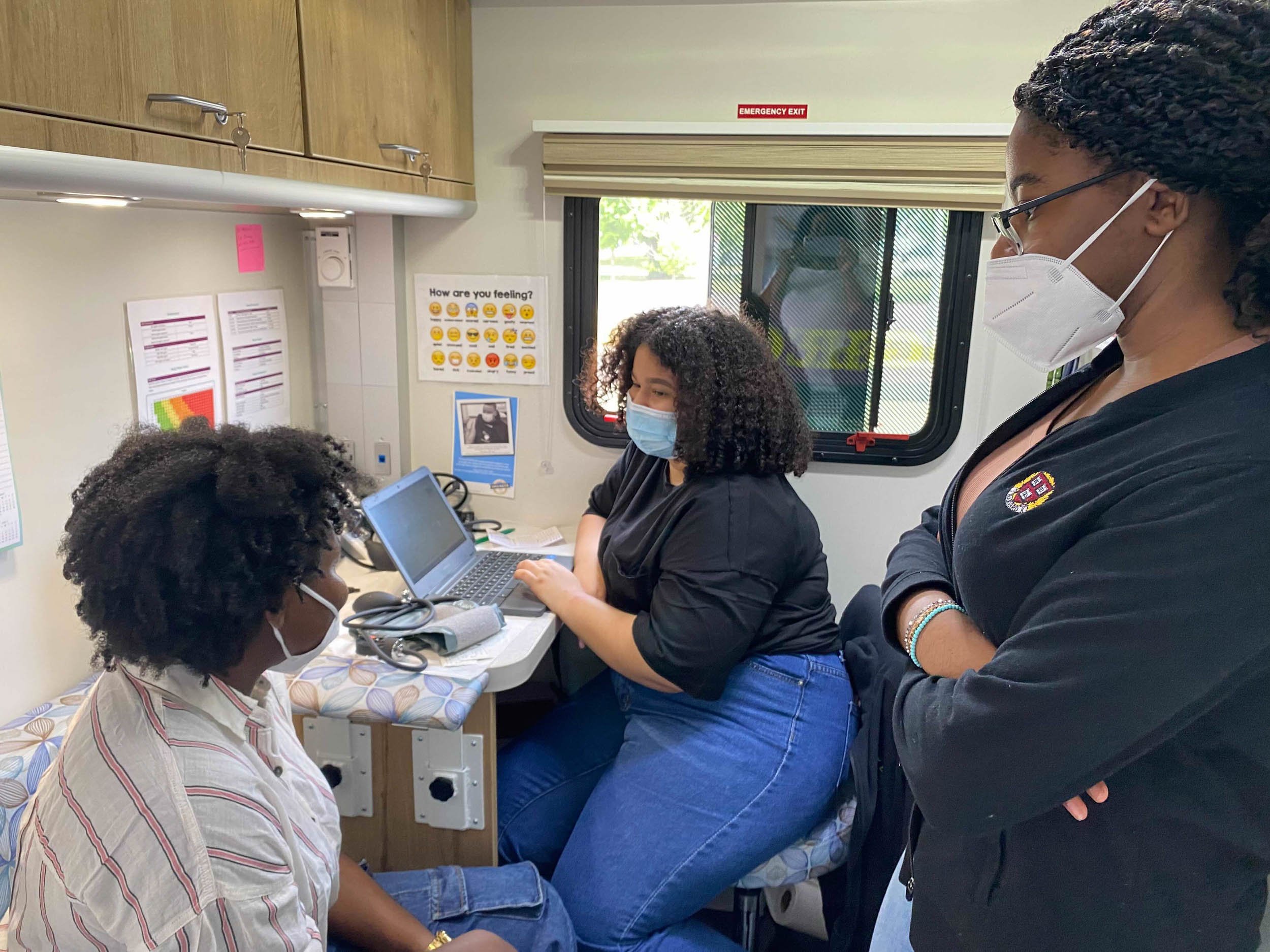
Boston Globe: ‘Bringing the treatment to where they are.’ Mobile health vans have boomed since the pandemic.
By 9:30 a.m. on a recent Friday morning, a line of people stretched for more than a block under the Adamski Memorial Highway in Chelsea.
They were waiting for a bi-weekly food pantry program run by La Colaborativa, a local organization focused on empowering Latino immigrants. But some stayed longer to visit a blue van parked next to the heaps of produce and canned goods.
Inside, visitors receive free COVID or flu shots, have their blood pressure checked, get a referral for programs that treat substance abuse use disorders and receive health information in nearly a dozen languages.
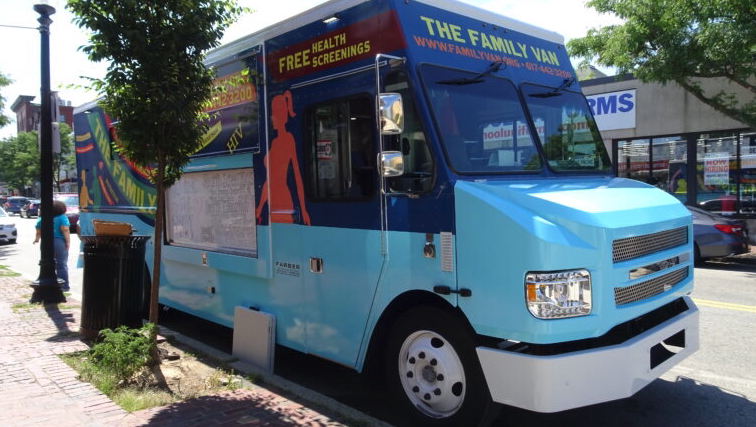
STAT News: ‘People count on it’: In Boston, a mobile clinic meets health needs in the neighborhood
BOSTON — By 9 a.m. on a recent Friday morning, the bright blue, colorfully branded van was already parked on a street in the Boston neighborhood of Dorchester. And while the street was still quiet, the community health workers were waiting inside for things to soon pick up.
On that particular morning, about 10 people stopped inside the Family Van, a mobile clinic run by Harvard Medical School that provides free, basic care four days a week. There, two community health workers and a supervisor worked steadily, checking each person’s blood pressure and blood sugar, then handing them a chilled bottle of water. Outside, a third community health worker who doubles as a driver spoke with people passing by, while two summer interns staffed a table with informational health fliers.
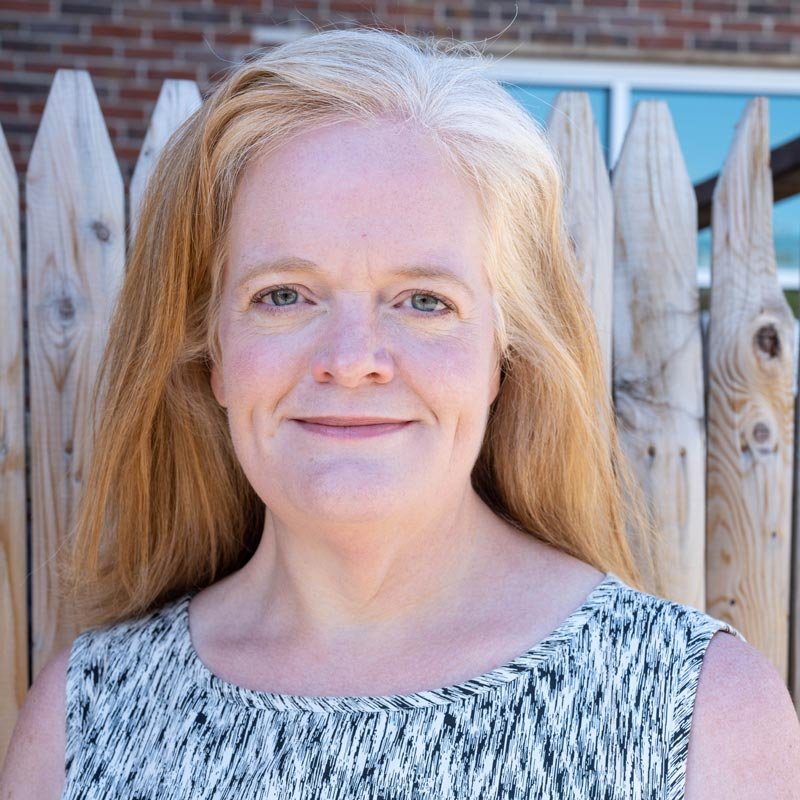
MedCity News: Access to healthcare isn’t enough, we must build community trust.
Mobile health clinics are particularly effective in facilitating access to health care for marginalized groups. Not only do they advance health equity, but they also complement other objectives of health care organizations, such as building trust and expanding community reach.
In June, a new report from the Centers for Diseases Control on access to Covid-19 therapies revealed a gaping hole in our nation’s healthcare system. Despite having established nearly 40,000 dispensing sites – particularly in high-vulnerability neighborhoods – those areas had the lowest rates of distribution. In short, lifesaving treatments are available, but the people who need them the most aren’t getting them.
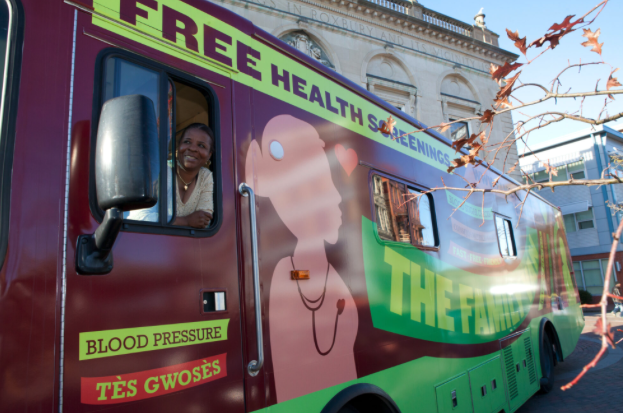
HealthLeaders: Redefining Care Delivery With Mobile Health Clinics
With an emphasis on mobility and innovation, mobile health clinics are helping to tackle care gaps, reach underserved populations, and give hospitals a new access point.
Healthcare organizations are realizing that some services need to be brought to the consumer, rather than waiting for that person to visit a doctor. And they're using mobile health clinics to make that connection.
Mobile health clinics come in many shapes and sizes, from fully equipped, customized RVs or trailers offering a range of primary and specialty care services, to small vans with the supplies and resources needed to address one particular goal, such as sexual health education, mammography screenings, or vaccinations. They're designed to go into communities that lack brick-and-mortar healthcare resources or have populations that won't or can't access healthcare services.
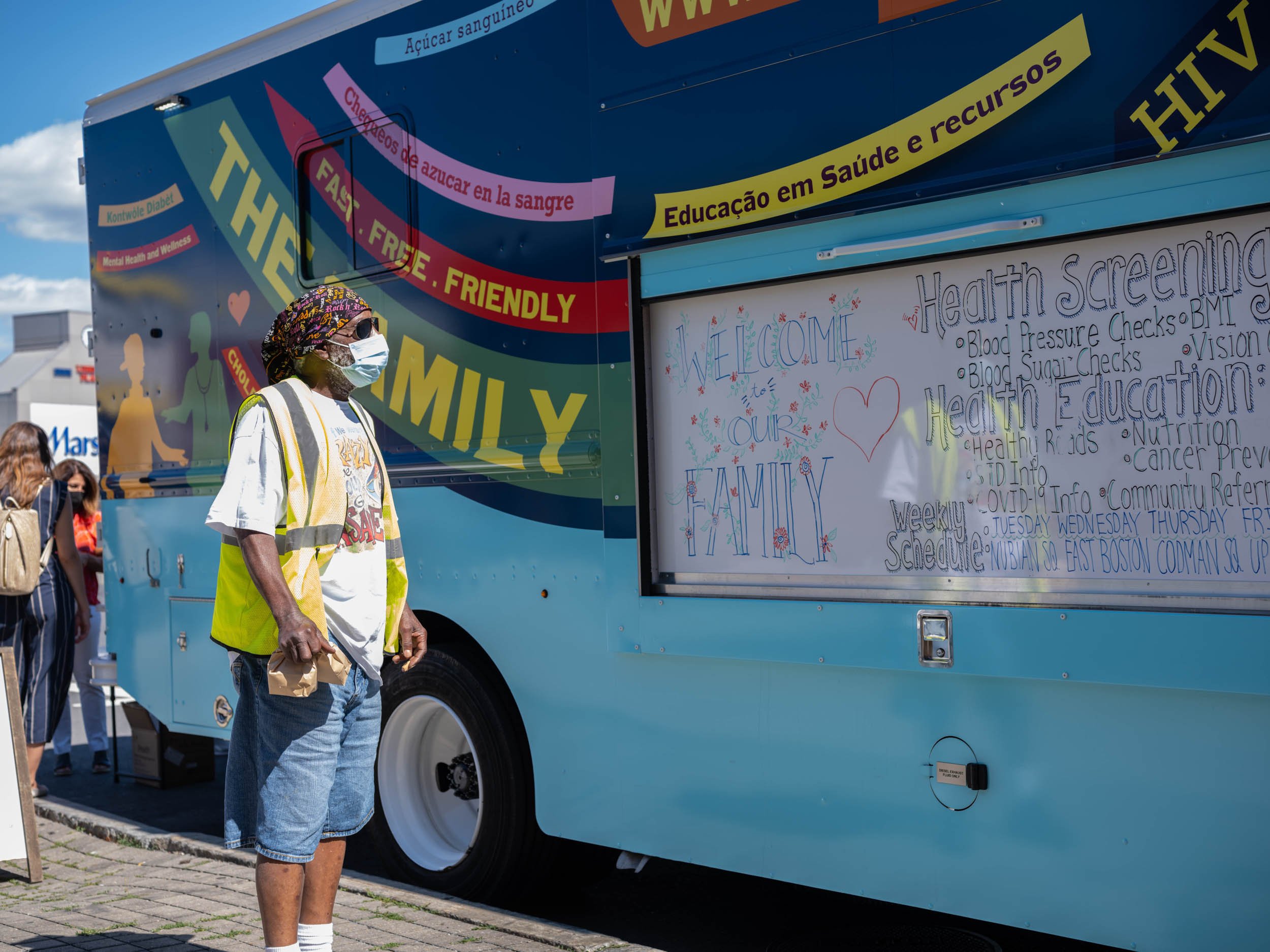
Newsweek: Plans to Help Underserved Communities Will Fail Without New Forms of Community Engagement | Opinion
The American health care system, battered by two-plus years of COVID-19, staff burnout and declining public trust, could be forgiven for a period of retrenchment and nostalgia for "the way things used to be." If that happens, however, we will miss the best opportunity in a generation to apply the innovations of the moment to build a better and more just system of care and delivery.
Our pandemic experience reinforced two key points that merit constant repetition. The first is that better engaging with our communities means working with them and actually listening to them. The second is that too much of how our health care payment system is structured gets in the way of how care should actually be delivered.
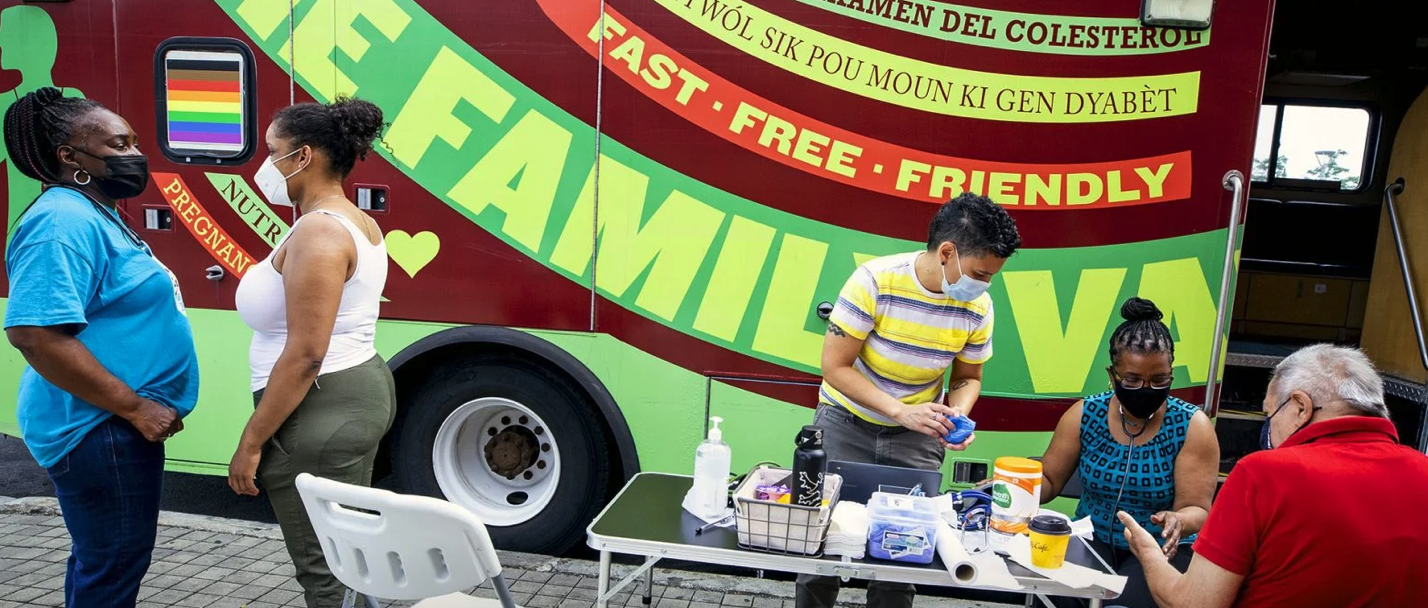
The Harvard Gazette: Driven to provide health care
After a 15-month, COVID-forced hiatus, the Family Van, a mobile health clinic affiliated with Harvard Medical School, is back on its regular routes.
Founded nearly three decades ago, the Family Van empowers community members by improving health literacy and providing free screenings for conditions such as blood pressure disorders, diabetes, HIV, pregnancy, and more, in several of Boston’s underserved neighborhoods. It also offers referrals and health and wellness counseling. Health insurance is not required, and IDs are not checked.
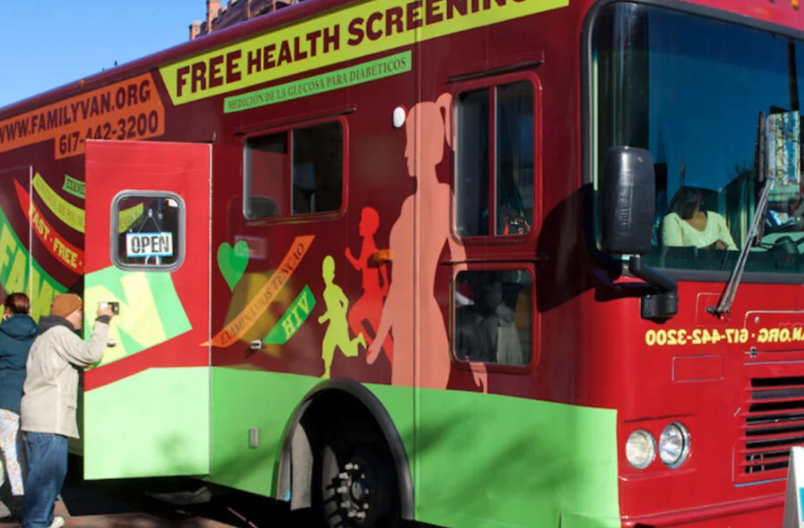
The Harvard Gazette: Mobile clinics finding their place in pandemic
With New York City hospitals already becoming overwhelmed and the expectation that health centers nationwide will soon follow suit, what place do mobile health clinics have in the battle against COVID-19? On Tuesday, the folks from Harvard Medical School’s Family Van co-hosted a webinar to take the industry’s pulse, discuss best practices, and bounce around some good ideas.
